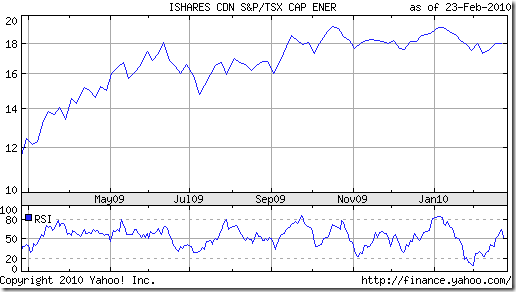
THE CASTLEMOORE INVESTMENT COMMENTARY
You beta believe.
A stock’s beta (β) is a measure of its sensitivity to movements in the market on which it trades. For instance, if the TSX rises (declines) by 1%, a stock that trades on that market that has a beta of, say, 1.1 would be expected to rise (fall) by 1.1%. If it rises (falls) by more than this, the excess is considered to be its alpha, or extra-market return. The pursuit of alpha is the target of any actively-managed equity portfolio.
Interesting aspects of beta:
– beta is not a stock’s coefficient of correlation, as some believe. A stock can (theoretically) have a correlation of a 1, the highest value possible, and still have a low beta.
– beta is used as a measure risk of a particular security. For instance, a security’s or portfolio’s nominal return divided by its beta is its risk-adjusted rate of return. Just because a particular stock outperformed or underperformed the market on which it trades doesn’t mean it did so on a risk-adjusted basis. This is a fundamental mistake many investors make when using an index like the TSX as a benchmark.
– the average beta for every stock that trades on the market must equal 1.
– portfolio managers whose mandate is to be invested in stocks but who expect a market decline can lessen the impact of the decline—reduce risk if you will—by lowering the beta of the managed portfolio. This is done by either swapping out high beta stocks and swapping in low beta stocks, or, if the option is available to them, using the exchange-traded options that are available to them.
– beta is generally calculated using linear regression. This is done one of two ways: allowing for alpha (and a y-intercept for the regression line) or under the assumption of no alpha. The average alpha for all stocks that trade on a market is zero, therefore the second approach is generally the better one. If you need to know more about it, contact us.
At CastleMoore we like to know the betas of all stock we are considering investing in. For instance, if two stocks have similar betas but one offers more liquidity than the other, then we would consider this in our deliberation (and almost always results in opting for the liquidity).
Fortunately, we have the advantage of not being required to have any level of exposure to the market.
The problem with using beta is that that the value you get depends on the period and frequency of the data used, i.e monthly prices or weekly? Two years or five years? As long as both parameters are kept constant for all securities measured, the results should have more or less the same level of usefulness. The larger issue stems from the fact that a recent measure of beta may differ significantly from the longer term one. We might expect that betas decline over time as the underlying company matures and its expected growth rate tapers off. But rising betas should be investigated.
The energy sector has been showing relative strength of late, compared both other sectors, as determined by our weekly momentum tables and versus its own trading pattern (see below). Two ways of playing this—and we have done both—is to buy shares of the XEG ETF, which is comprised of oil producers, and/or shares of an attractive oil services company.

WEBINAR ANNOUNCEMENT WEBINAR SERIES – Beyond Bullmanship Presenation #2 (of 3)
Monday, March 1 at 7PM est & at 6PM pst
SIGN UP http://www.castlemoore.com/investorcentre/signup.php.
CastleMoore helps people manage their life savings. We are not stock brokers or mutual fund salesmen. We are discretionary investment managers specializing in “buy low, sell high” strategies instead of “buy and hold” strategies like all the others.
Our competition is the stock brokerage industry, the mutual fund industry and the “value” or “growth” money managers like, RBC Private Counsel, BMO Harris Private Banking, TD Asset Management or CIBC Wood Gundy Consulting.
At CastleMoore we manage our clients’ investments through a methodical and disciplined set of systems that removes individual bias and emotion from the investment process. What we do works. We rely heavily on loss avoidance techniques based firstly on supply and demand analysis; secondly, on the traditional approach.
Our clients are investors that have little tolerance for investment losses. They expect to get their money’s worth, and appreciate CastleMoore’s all-inclusive and comprehensive fee schedule. If we are required, because of dangerous markets, to be more active, CastleMoore bears the extra cost of the more frequent transactions.
